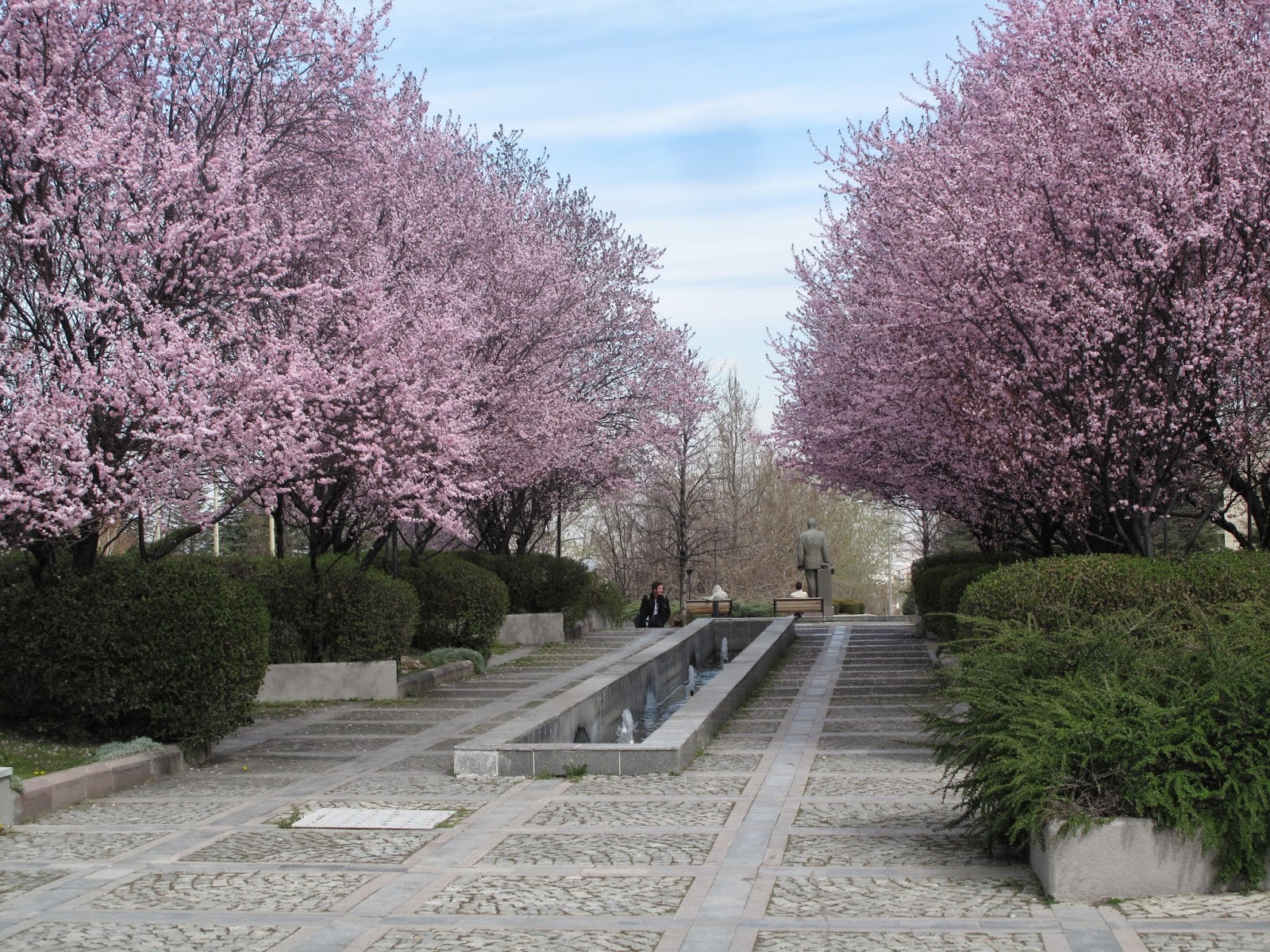The other
day I came across Uğur Bey, our photocopy man, relining a desk drawer with some heavy paper.
“Spring
cleaning,” he said. It looked neat and
tidy.
“I need
to do the same,” I said, “for my whole office.”
A Herculean task, I’m afraid, thanks to my congenital disinclination to
order and the lingering effects of last summer’s renovations in our Faculty
building (plaster dust, books & notes stashed randomly).
One
Monday morning in early February, I returned to my office from ten days in
England, a visit with some lectures to give at the University of Reading,
courtesy of the Erasmus staff exchange agreement between our Archaeology
Departments. Our spring semester was already
underway. My wastepaper baskets were
full. The croton on my desk, its leaves
drooping, was dying of thirst. Murat,
our cleaning man, had not once set foot in my office, it was all too clear.
Looking
on the computer, I learned that one of my courses – introduction to European
art and architecture, medieval to modern – was scheduled in a classroom without
a projector. Another course had been
assigned no room at all.
“The
rooms are all taken!” was our secretary’s immediate reaction.
By
the late afternoon, the waste baskets had been emptied, the carpet vacuumed,
the croton watered, and the two courses had been scheduled in a classroom (with
projector) right next to my office.
Murat
is well-meaning but cleaning is not his forte.
Three young colleagues from the Pyschology Department, newly arrived
last September and installed in offices on our Archaeology corridor, finally
gave up on him and arranged for the janitor from Psychology’s heartland, two
floors up, to come down and clean their offices. This man appears daily, with a cart
well-equipped with trash bags, cloths, sponges, and cleaning products.
We
archaeologists suddenly took notice. Why
were we accepting shoddy cleaning? But now,
surely Murat would be inspired by his colleague’s example, procure proper
equipment, and empty our trash daily – wouldn’t he?
A
few weeks passed and nothing changed.
Fed
up, we demanded that our chair speak with Esat Bey, the supervisor. Esat Bey once came on an Archaeology
Department field trip to Hattusa, the Hittite capital – we know him well.
The
next day, Esat Bey made the rounds, speaking with each colleague.
I
ran into Murat and Esat Bey in the corridor.
“If
he doesn’t clean regularly,” Esat Bey said, “we’re going to fire him. How often does he empty your trash?”
“Once
every ten days,” I said.
Esat
Bey gave Murat his orders. Murat
smiled. They have known each other for a
long time.
My
trash is now emptied daily, more or less, my office vacuumed and the desk wiped
regularly, more or less – with water splashed on the carpet, routinely. The water splotches are a sign that a
cleaning activity has taken place.
It’s
now up to me to do my share – to put on a CD (Cesaria Evora is particularly
inspiring) and ruthlessly sort, throw out, arrange, organize.
At
home, our cat is shedding, now that winter has given way to spring. Momtaz is a long-haired Persian, so there is
much fur to shed. A daily brushing is in
order, by her personal groomer (Marie-Henriette or me), which she enjoys enormously.
This
Sunday we’re having nation-wide elections, for municipal offices. Will this be an electoral spring
cleaning? The prime minister has framed
these elections as a referendum about himself, although he is not a candidate.
In the two largest cities, Istanbul and Ankara, the races are tight between the
incumbents, both AK Party (the prime minister’s conservative Islamist party,
which holds a majority in Parliament), and the main challengers, both CHP
(Republican People’s Party, the main left-center party founded by Atatürk).
Melih
Gökçek has been the mayor of Ankara for 20 years. His mustachioed face is very familiar. To him we owe a Piranesian network of
underpasses and overpasses, no doubt helpful for traffic flow but contributing
nothing to the visual elegance of the city.
To think that Ankara could have had its own Champs Elysées, if only the
urban planning principles of the 1930s had been stuck to!
To
boost the mayor’s prospects for reelection, the new metro line to Bilkent and
beyond, westward along the Eskişehir road, was opened just two weeks ago, after
at least a dozen years under construction.
The prime minister joined the mayor at the official opening ceremony.
We rode
the new metro to Kızılay the other evening.
It is great, we all agree, but is opening it now, just before the
elections, going to change anyone’s vote?

As one of
the numerous AK Party campaing posters notes, “I’ll look at accomplishments,
not empty words” (“Lafa değil, icraata bakarım”). Many voters might be doing exactly that,
although (in light of the corruption scandal ongoing since December 17th) not
in the way the AK Party intends.
Meanwhile,
the fruit trees on the Bilkent campus are in full, magnificent flower.
Spring is
here.





